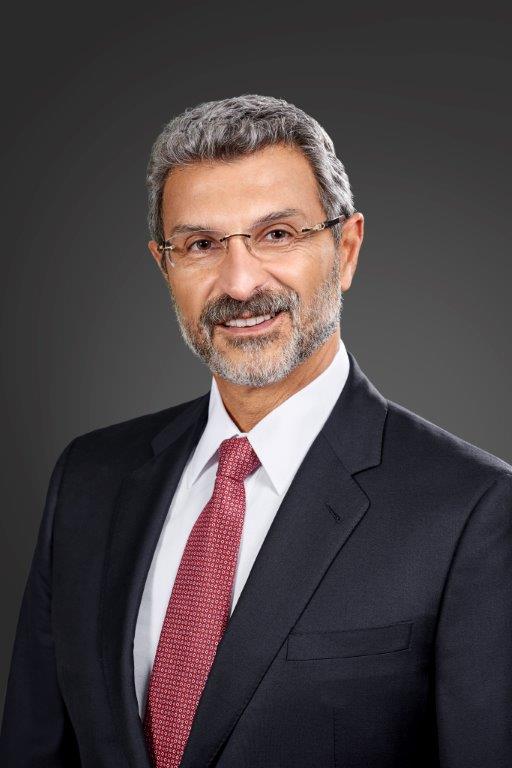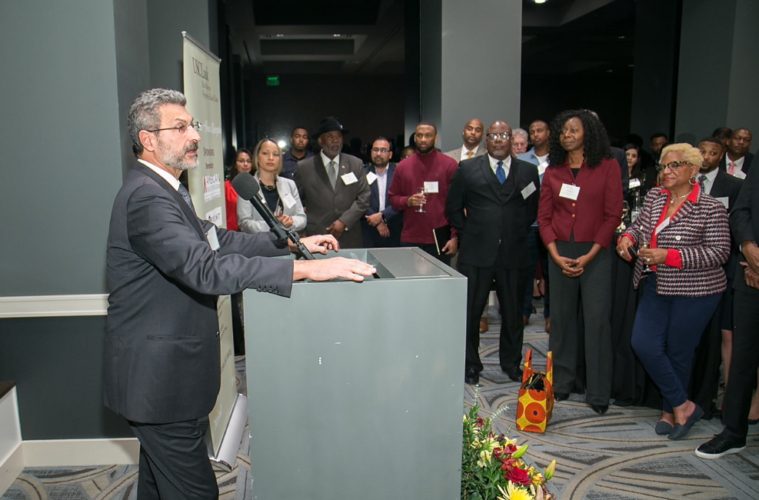“Our survival is all dependent on having each others’ back,” explains FivePoint Chairman and CEO Emile Haddad on this week’s podcast. Zooming in with podcast host and L.A. Weekly publisher Brian Calle, Haddad voices a calming perspective on how the coronavirus pandemic will change and shape the world, and what we must do to make it to the other side.
As a renowned community builder, one might expect Haddad’s viewpoint to be built upon years of professional leadership. Rather, it is bred from adversity, having lived 11 years in civil war, growing up in war-torn Lebanon.
The Lebanese Civil War began in 1975, when Haddad was 17 years old. The fighting continued until 1990, resulting in an estimated 120,000 deaths.

(Emile Haddad)
“Overnight our lives changed,” remembers Haddad. Before the war, Lebanon was a beautiful place to be. The community enjoyed the good life, unaware of the commodities they were taking for granted. When the fighting began, everything they once enjoyed was stripped from them suddenly. “You were focused on survival,” says Haddad.
What we’ve been enduring the past few weeks as Californians and Americans have been reminding Haddad of the hardships of his youth, where communities are learning to appreciate what they have in each other.
“In an ironic way, these are the times that actually bring the community together,” Haddad says of the current pandemic. “We might be isolated and we might not be socially interacting, but we are actually sharing a common thing right now. We are in the same boat together, surviving as a society, and not only in smaller communities, but globally.”
How does one find purpose or hope in times of great adversity? By focusing on what you can do, rather than what you can’t.
“One of the things that brings the community together is when the community feels like they are fighting for the same thing. And today we are all fighting against the virus that is not discriminating between people who have wealth or don’t, it doesn’t discriminate against color or nations,” Haddad observes.
Doing something to help others can help you feel in control of an otherwise uncontrollable situation. A lesson proudly learned by this week’s guest as he tells our host of the 80 days he spent volunteering in a hospital during the war of his youth. “Those were probably the most defining 80 days of my life,” recounts Haddad. Those were the days where he learned to differentiate between an inconvenience and a problem.
The coming days will be the most important in our lives, where we choose to either do our part by staying inside and helping out where we can, or to be selfish and dismissive of the health and safety of others.
“These are the moments that define us,” agrees Haddad on the podcast. “These are the moments that build communities and build relationships.” Make sure that your present actions are something you can live with for the rest of your life, cautions this week’s guest, as your future relationships will be defined by how you react to this global crisis.
We know that despite the grim circumstances, the world is not ending. There will be a day after. So what can we do to ensure that day is bright and beautiful? By focusing on community building and service.
Heroes come in all forms these days. From those who donate crucial PPE, to front-line medical and service workers, to even those that do their part by adhering to social-distancing orders. No action is too big or too small; everyone is capable of doing their part to save lives. It is important to find and tell the stories of all the heroes, as this is a time to celebrate strength and courage.
“When all is said and done, and we all mourn those who unfortunately didn’t make it through this period, we as a society will become more mature and a better society,” imparts Haddad.
In dark times, the bonds of community shine through. Sit down and be comforted by the prospect of a better tomorrow on this week’s L.A. Weekly podcast.
Listen to the podcast here or find it on iTunes here.
Advertising disclosure: We may receive compensation for some of the links in our stories. Thank you for supporting LA Weekly and our advertisers.

